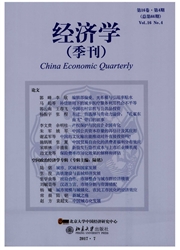

 中文摘要:
中文摘要:
根据我们在黄河流域四个大型灌区的实证研究发现,传统上村级的集体水资源管理制度正在逐渐被用水协会和承包管理所代替。由于改革具有很明显的自上而下的特征。因而很多改革流于形式;而只有那些建立了有效节水激励机制的水资源管理制度才能实现节水的目标。我们进一步的实证研究表明。具有节水激励机制的水资源管理制度的改革会导致小麦单产的降低,但不会对玉米和水稻的单产以及农民收入产生显著影响,而且贫困状况也不会因此而恶化。
 英文摘要:
英文摘要:
We find in four large irrigation districts of the Yellow River Basin that village colective management has been replaced either by Water User Associations or contracting management. Characterized by top-down policy intervention, most cases of water management reform have been nominal. Only those institutions with incentive mechanism have met the objective to save water. Our further empirical research indicates that water management reform with incentive has reduced wheat yield, but has no significant influence on yields of maize and rice, farmer income and poverty.
 同期刊论文项目
同期刊论文项目
 同项目期刊论文
同项目期刊论文
 Incentives to Managers and Participation of Farmers: Which Matters for Water Management Reform in Ch
Incentives to Managers and Participation of Farmers: Which Matters for Water Management Reform in Ch 期刊信息
期刊信息
